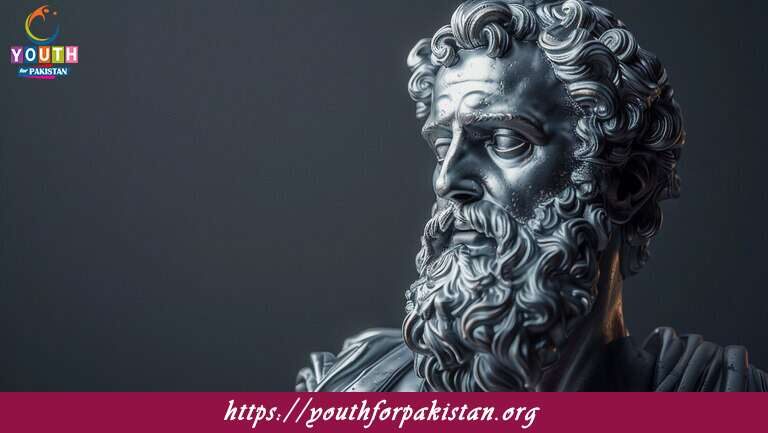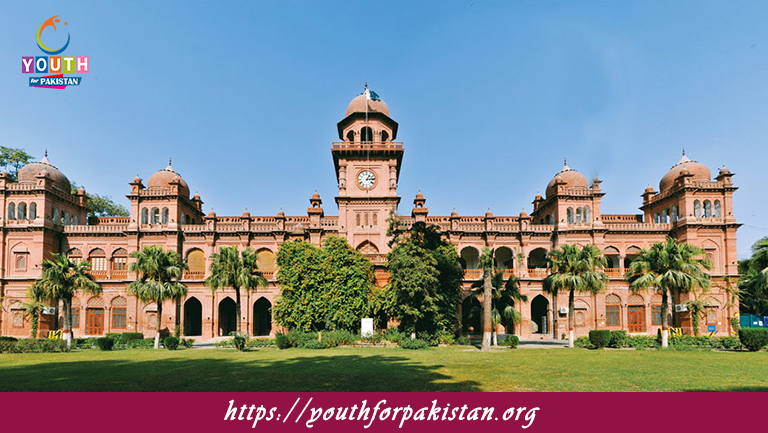Welcome to the World Philosophers and Thinkers MCQs with Answers. In this post, we are sharing World Philosophers and Thinkers Multiple Choice Questions and Answers in World General Knowledge section for various competitive exams in Pakistan. Find practice World Philosophers and Thinkers practice test with answers here. Each question offers a chance to enhance your knowledge regarding World Philosophers and Thinkers MCQs Online Test.
Who is considered the father of modern philosophy and is known for the statement, “I think, therefore I am”?
a) Socrates
b) Aristotle
c) Immanuel Kant
d) René Descartes
Which Greek philosopher is known for his teachings on ethics and the concept of the “Golden Mean”?
a) Socrates
b) Aristotle
c) Plato
d) Heraclitus
Who is the Chinese philosopher known for his ethical and moral philosophy, emphasizing filial piety and respect for tradition?
a) Laozi
b) Confucius
c) Sun Tzu
d) Zhuangzi
Which philosopher and mathematician is credited with developing the foundations of modern calculus and making significant contributions to physics and optics?
a) John Locke
b) Galileo Galilei
c) Isaac Newton
d) Blaise Pascal
This Indian philosopher and spiritual leader founded Buddhism and is known as the Buddha. What was his birth name?
a) Siddhartha Gautama
b) Ashoka
c) Chandragupta Maurya
d) Akbar the Great
Who is the German philosopher known for his influential work “Critique of Pure Reason” and his contributions to metaphysics and epistemology?
a) Friedrich Nietzsche
b) Georg Wilhelm Friedrich Hegel
c) Immanuel Kant
d) Arthur Schopenhauer
Which French philosopher is known for his social contract theory and the idea that individuals give up certain freedoms for the greater good of society?
a) Jean-Jacques Rousseau
b) Voltaire
c) Montesquieu
d) Denis Diderot
This ancient Chinese philosopher is known for his foundational text, the “Tao Te Ching,” which emphasizes living in harmony with the Tao. Who is he?
a) Confucius
b) Laozi
c) Sun Tzu
d) Mencius
Who is the Russian novelist and philosopher known for works such as “War and Peace” and “Anna Karenina”?
a) Fyodor Dostoevsky
b) Anton Chekhov
c) Leo Tolstoy
d) Vladimir Nabokov
This Greek philosopher is known for his dialogues, including “The Republic” and his teachings on justice and the allegory of the cave. Who is he?
a) Socrates
b) Aristotle
c) Plato
d) Heraclitus
Who is the French philosopher and writer known for his existentialist works, including “Being and Nothingness”?
a) Jean-Paul Sartre
b) Albert Camus
c) Simone de Beauvoir
d) Jean-Jacques Rousseau
Which Enlightenment philosopher is known for his ideas on separation of powers and checks and balances in government?
a) John Locke
b) Montesquieu
c) Thomas Hobbes
d) Voltaire
This ancient Greek philosopher is known for his doctrine of change, stating that “everything flows.” Who is he?
a) Socrates
b) Aristotle
c) Plato
d) Heraclitus
Who is the American philosopher and psychologist known for his contributions to the field of pragmatism and his work on the philosophy of education?
a) John Dewey
b) William James
c) Ralph Waldo Emerson
d) Henry David Thoreau
Which Enlightenment philosopher is known for his advocacy of free speech and separation of church and state?
a) Voltaire
b) John Locke
c) Jean-Jacques Rousseau
d) Thomas Hobbes
Who is the German philosopher known for his critique of religion and his assertion that “religion is the opiate of the masses”?
a) Friedrich Nietzsche
b) Karl Marx
c) Sigmund Freud
d) Max Weber
This Chinese philosopher and military strategist is famous for “The Art of War,” a treatise on strategy and tactics. Who is he?
a) Confucius
b) Laozi
c) Sun Tzu
d) Mencius
Who is the British philosopher known for his empiricist views on knowledge and his “Essay Concerning Human Understanding”?
a) John Locke
b) David Hume
c) Thomas Hobbes
d) Immanuel Kant
This German philosopher is known for his works on aesthetics and his exploration of the sublime. Who is he?
a) Friedrich Nietzsche
b) Arthur Schopenhauer
c) Immanuel Kant
d) Georg Wilhelm Friedrich Hegel
Who is the French philosopher and writer known for his skepticism and “Essays,” which explore various topics and ideas?
a) Jean-Paul Sartre
b) Michel de Montaigne
c) René Descartes
d) Blaise Pascal
This Indian philosopher and diplomat is known for his contributions to Buddhism and the spread of the Mauryan Empire. Who is he?
a) Siddhartha Gautama
b) Ashoka
c) Chandragupta Maurya
d) Akbar the Great
Who is the American philosopher and psychologist known for his work on functionalism and his influence on the field of psychology?
a) John Dewey
b) William James
c) Ralph Waldo Emerson
d) Henry David Thoreau
This ancient Greek philosopher is known for his doctrine of atomism and the idea that the universe is made up of indivisible particles. Who is he?
a) Socrates
b) Aristotle
c) Plato
d) Democritus
Who is the French philosopher known for his contributions to the philosophy of science and his development of the hypothetico-deductive method?
a) René Descartes
b) Blaise Pascal
c) Jean-Jacques Rousseau
d) René Descartes
This Austrian-British philosopher is known for his contributions to the philosophy of language and the idea of the “language game.” Who is he?
a) Ludwig Wittgenstein
b) Karl Popper
c) Sigmund Freud
d) Alfred North Whitehead
Who is the Italian philosopher and writer known for his political treatise “The Prince” and his views on power and leadership?
a) Niccolò Machiavelli
b) Giordano Bruno
c) Thomas Aquinas
d) Galileo Galilei
This Indian philosopher and theologian is known for his commentaries on the Upanishads and the Bhagavad Gita. Who is he?
a) Siddhartha Gautama
b) Ashoka
c) Chandragupta Maurya
d) Adi Shankaracharya
Who is the American naturalist, essayist, and transcendentalist philosopher known for his work “Walden” and his ideas on simple living in natural surroundings?
a) John Dewey
b) Ralph Waldo Emerson
c) Henry David Thoreau
d) William James
This German philosopher is known for his existentialist works, including “Thus Spoke Zarathustra” and his concept of the “Übermensch” (Overman).
a) Friedrich Nietzsche
b) Jean-Paul Sartre
c) Albert Camus
d) Martin Heidegger
Who is the Chinese philosopher and poet known for his Taoist philosophy and his collection of poems and essays known as the “Chuang Tzu”?
a) Laozi
b) Confucius
c) Sun Tzu
d) Zhuangzi
This American feminist, essayist, and social reformer is known for her work “The Second Sex” and her contributions to feminist philosophy.
a) Mary Wollstonecraft
b) Simone de Beauvoir
c) Gloria Steinem
d) Susan B. Anthony
Who is the German philosopher known for his ideas on existentialism and his work “Being and Time”?
a) Friedrich Nietzsche
b) Jean-Paul Sartre
c) Martin Heidegger
d) Albert Camus
This British philosopher is known for his work on utilitarianism and his principle of the greatest happiness for the greatest number. Who is he?
a) John Stuart Mill
b) Jeremy Bentham
c) Thomas Hobbes
d) David Hume
Who is the American civil rights leader and philosopher known for his nonviolent resistance and his “Letter from Birmingham Jail”?
a) Malcolm X
b) Frederick Douglass
c) W. E. B. Du Bois
d) Martin Luther King Jr.
This German philosopher and economist is known for his ideas on historical materialism and his collaboration with Friedrich Engels. Who is he?
a) Georg Wilhelm Friedrich Hegel
b) Ludwig Feuerbach
c) Karl Marx
d) Max Weber
Who is the Indian philosopher and spiritual leader known for his teachings on nonviolence, truth, and self-restraint (ahimsa)?
a) Siddhartha Gautama
b) Ashoka
c) Mahatma Gandhi
d) Swami Vivekananda
This French philosopher and mathematician is known for his “Pascal’s Wager” and his work on probability theory. Who is he?
a) Jean-Paul Sartre
b) Michel de Montaigne
c) Blaise Pascal
d) René Descartes
Who is the African-American feminist and writer known for her work “The Second Sex” and her contributions to black feminism and womanism?
a) Audre Lorde
b) Maya Angelou
c) Angela Davis
d) bell hooks
This Italian philosopher and Dominican friar is known for his Summa Theologica and his contributions to the philosophy of religion. Who is he?
a) Thomas Aquinas
b) Augustine of Hippo
c) Roger Bacon
d) John Duns Scotus
Who is the African-American civil rights activist, historian, and philosopher known for his contributions to the civil rights movement and his book “The Souls of Black Folk”?
a) Malcolm X
b) Frederick Douglass
c) W. E. B. Du Bois
d) Booker T. Washington
Who is the Greek philosopher known for his method of questioning and is considered the father of Western philosophy?
a) Aristotle
b) Socrates
c) Plato
d) Heraclitus
Which philosopher is best known for his work “Meditations” and is considered a key figure in Stoicism?
a) Seneca
b) Epictetus
c) Marcus Aurelius
d) Cicero
Who is the Chinese philosopher and teacher whose ideas on ethics and governance are collected in the Analects?
a) Confucius
b) Laozi
c) Sun Tzu
d) Zhuangzi
The philosopher who is famous for his allegory of the cave and the theory of Forms is:
a) Aristotle
b) Socrates
c) Plato
d) Epicurus
This philosopher is known for his social contract theory and the idea of the “general will.”
a) John Locke
b) Jean-Jacques Rousseau
c) Thomas Hobbes
d) Immanuel Kant
Who is the Indian philosopher and founder of Buddhism who sought enlightenment under the Bodhi tree?
a) Mahavira
b) Ashoka
c) Siddhartha Gautama
d) Guru Nanak
The author of “The Prince,” a treatise on political leadership and power, is:
a) Niccolò Machiavelli
b) Giuseppe Garibaldi
c) Cesare Borgia
d) Dante Alighieri
This German philosopher and economist co-authored “The Communist Manifesto” with Friedrich Engels.
a) Friedrich Hayek
b) Karl Popper
c) Karl Marx
d) Georg Wilhelm Friedrich Hegel
Who is the existentialist philosopher known for his works “Being and Time” and “What Is Metaphysics?”?
a) Friedrich Nietzsche
b) Jean-Paul Sartre
c) Albert Camus
d) Martin Heidegger
The ancient Greek philosopher who is considered the “Father of Medicine” is:
a) Hippocrates
b) Pythagoras
c) Euclid
d) Archimedes
Who is the French philosopher known for his skeptical philosophy and the phrase “I think, therefore I am”?
a) René Descartes
b) Voltaire
c) Jean-Jacques Rousseau
d) Blaise Pascal
This Scottish philosopher and economist is known for his work “The Wealth of Nations” and the concept of the “invisible hand.”
a) David Hume
b) Adam Smith
c) John Locke
d) John Stuart Mill
The Roman statesman and philosopher who wrote “Letters to Lucilius” is commonly known as:
a) Cicero
b) Seneca
c) Epictetus
d) Marcus Aurelius
This Enlightenment philosopher is famous for his advocacy of separation of powers in government.
a) Thomas Hobbes
b) John Locke
c) Montesquieu
d) Jean-Jacques Rousseau
The Chinese philosopher known for his Taoist teachings, including the “Tao Te Ching,” is:
a) Confucius
b) Laozi
c) Sun Tzu
d) Zhuangzi
Who is the British philosopher and utilitarianism proponent known for his works “Utilitarianism” and “On Liberty”?
a) John Locke
b) Thomas Hobbes
c) Jeremy Bentham
d) John Stuart Mill
The philosopher and mathematician who famously said, “Cogito, ergo sum” (I think, therefore I am), is:
a) Friedrich Nietzsche
b) Blaise Pascal
c) René Descartes
d) Søren Kierkegaard
Who is the Persian polymath known for his contributions to various fields, including mathematics, astronomy, and philosophy?
a) Al-Ghazali
b) Ibn Khaldun
c) Avicenna
d) Al-Farabi
This Indian philosopher and mathematician is famous for his theorem on right-angled triangles.
a) Aryabhata
b) Chanakya
c) Nagarjuna
d) Adi Shankaracharya
The philosopher known for his “categorical imperative” and deontological ethics is:
a) Immanuel Kant
b) Friedrich Nietzsche
c) Arthur Schopenhauer
d) Søren Kierkegaard
Who is the ancient Greek philosopher and mathematician known for the Pythagorean theorem?
a) Socrates
b) Aristotle
c) Euclid
d) Pythagoras
The Roman philosopher and orator known for his philosophical essays, including “De Officiis,” is:
a) Seneca
b) Cicero
c) Epictetus
d) Marcus Aurelius
This Enlightenment thinker and author of “Candide” is known for his satirical works and criticism of optimism.
a) Jean-Jacques Rousseau
b) Voltaire
c) Montesquieu
d) Denis Diderot
The philosopher known for his work “Thus Spoke Zarathustra” and the concept of the “will to power” is:
a) Friedrich Nietzsche
b) Arthur Schopenhauer
c) Karl Marx
d) Søren Kierkegaard
This Greek philosopher and founder of the Lyceum was a student of Plato and a teacher of Alexander the Great.
a) Socrates
b) Heraclitus
c) Aristotle
d) Epicurus
The French philosopher known for his skepticism and the essay “Apology for Raymond Sebond” is:
a) René Descartes
b) Jean-Jacques Rousseau
c) Michel de Montaigne
d) Blaise Pascal
Who is the African-American philosopher and civil rights activist known for his work “The Souls of Black Folk”?
a) Booker T. Washington
b) Martin Luther King Jr.
c) Malcolm X
d) W.E.B. Du Bois
The philosopher and author of “The Second Sex” is a prominent figure in existentialist feminism.
a) Simone de Beauvoir
b) Mary Wollstonecraft
c) Gloria Steinem
d) Judith Butler
This Indian philosopher and statesman is known for his political treatise “Arthashastra.”
a) Chanakya
b) Nagarjuna
c) Aryabhata
d) Adi Shankaracharya
Who is the Russian novelist and philosopher known for his works “Crime and Punishment” and “The Brothers Karamazov”?
a) Leo Tolstoy
b) Anton Chekhov
c) Fyodor Dostoevsky
d) Ivan Turgenev
The German philosopher and author of “The World as Will and Representation” is:
a) Friedrich Nietzsche
b) Arthur Schopenhauer
c) Georg Wilhelm Friedrich Hegel
d) Søren Kierkegaard
Who is the Danish philosopher known for his existentialist philosophy and works like “Fear and Trembling”?
a) Friedrich Nietzsche
b) Blaise Pascal
c) Søren Kierkegaard
d) Albert Camus
This Indian philosopher and theologian is known for his contributions to Advaita Vedanta.
a) Chanakya
b) Nagarjuna
c) Aryabhata
d) Adi Shankaracharya
The British philosopher known for his works “An Essay Concerning Human Understanding” and “Two Treatises of Government” is:
a) John Locke
b) Thomas Hobbes
c) David Hume
d) John Stuart Mill
Who is the French philosopher and author of “Discourse on the Method”?
a) René Descartes
b) Voltaire
c) Jean-Jacques Rousseau
d) Blaise Pascal
The philosopher known for his ethical theory of utilitarianism and the principle of the greatest happiness is:
a) John Locke
b) Thomas Hobbes
c) Jeremy Bentham
d) John Stuart Mill
This Chinese philosopher and teacher is known for his sayings and teachings compiled in the “Tao Te Ching.”
a) Confucius
b) Laozi
c) Sun Tzu
d) Zhuangzi
Who is the German philosopher known for his work “Beyond Good and Evil” and his concept of the “will to power”?
a) Friedrich Nietzsche
b) Arthur Schopenhauer
c) Martin Heidegger
d) Immanuel Kant
The Indian philosopher and mathematician who made significant contributions to the development of the number system is:
a) Aryabhata
b) Chanakya
c) Nagarjuna
d) Adi Shankaracharya
This philosopher and playwright is known for his existentialist works, including “No Exit” and “The Flies.”
a) Friedrich Nietzsche
b) Jean-Paul Sartre
c) Albert Camus
d) Martin Heidegger










